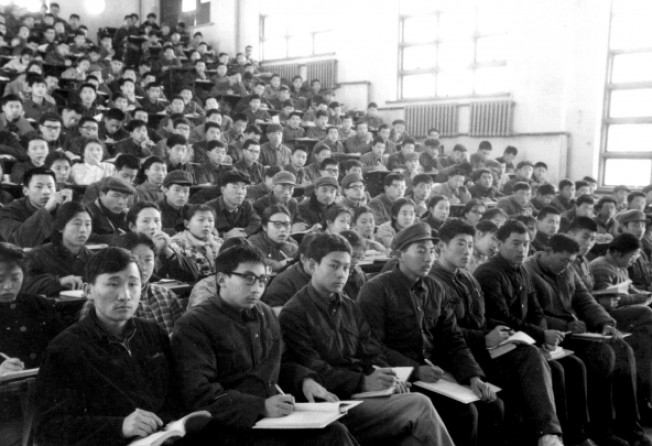Living with the snoops in China
Philip Cunningham says the snoops who doubled as doormen and dorm mates now seem old school

Part of the folklore of being a foreign student in China in the 1980s was that Big Brother was watching, all the time. Very few people had first-hand knowledge, fewer even had proof, but the discomfort, if not fear, was pervasive.
A foreign student in China could easily get the impression that the country was one big spy machine, based on documented tales of abuse that came out of the Cultural Revolution and other score-settling periods, and undocumented, anecdotal tales from more tranquil times - such as "I told my wife on the phone the refrigerator in the hotel room wasn't working and, 10 minutes later, housekeeping came up to fix it"; this sort of story.
The longer one was in China, the more the anecdotal "evidence" piled up, but it was hard to get the big picture. Foreign students would gather in their dorm after curfew and speculate about who the local snoops were: the doorman, or dorm monitor, for example.
My understanding, then, as now, was that the phone was the weak link. To make a call, one had to go through a switchboard, which was as good as a "snitchboard". Public phones were manned by nosy attendants.
Sometimes the blanket of watchfulness was almost edifying, as if the system was benevolent, looking after the public good, protecting people from themselves.
The son of a well-known associate of Mao Zedong would sometimes visit my dorm room at Beijing Normal University to practise English and share a cup of coffee, which I brewed on an electric hot pot I kept hidden, because such appliances were not allowed in the dorm. To reciprocate, he invited me to a private lunch with friends in a suite in the government-run Beijing Hotel, which had a reputation for tight surveillance. As we chatted, our conversation was interrupted by the startling appearance of a rat that scurried across the room.
To see a roomful of former Red Guards trying, and failing, to trap and kill the rat brought to mind Cultural Revolution zealotry. But what really seemed to hark back to that spooky era was the announcement, about a week later, that a nationwide anti-rat campaign was being put into affect. My dorm, like others across the country, was searched, and the hot pot that I kept hidden was confiscated.
During the hectic upheaval of 1989, the spectre of Big Brother took a back seat to Mr Science and Democracy, Lady Liberty and other more charismatic guests, during which time I heard expressions of solidarity from the very gatekeepers in dorms and hotels who I previously had reason to assume were snitching.
Living with surveillance does tend to alter one's behaviour, swinging between paranoia and anger at the stealthy watchers, and a shoulder-shrugging dismissal of its cost, along the lines of "if you are not doing anything wrong, there's nothing to hide". Still, it rankled then and it rankles now, especially with the revelations that the whole planet has become something of a panopticon for US and British authorities.
As a freelance journalist subject to intermittent surveillance by both Chinese and Western security services, I often asked people presumably in the know (diplomats, attachés, statesmen, academics and intelligence officials) about the extent of surveillance on both sides. The answers were vague, but I did get the sense that the kind of spying I had worried about as a student and journalist in China was chump change. There were things going on at a level that insiders could only begin to hint at.
Interestingly, none of them shared with me the outrage of being spied on by nannies, doorkeepers and phone operators, which surprised me at the time but which I better understand now. Not only did those in the know know that the US was spying, too, but spying in ways so pervasive as to make China's human intelligence efforts seem laughably old school, almost quaint.
What was also curious was that those with access to the most voluminous information about China seemed to adopt a pro-China stance in public. Indeed, Ezra Vogel's most recent book about Deng Xiaoping takes a surprisingly orthodox line. I also found this to be the case while conducting research at Harvard, where Jiang Zemin during his 1997 visit was so cosseted by Vogel that standard university question and answer was prohibited. That year, I drank sherry with the likes of China's spy chief Xiong Guangkai as a guest of Vogel and his former boss at the National Intelligence Council, Joseph Nye.
Vogel once told me that covering China for US intelligence is like being a professor with a thousand research assistants and the world's biggest database to draw from. Nye was more reticent about his intelligence work, other than to say, "Ezra is my eyes and ears for both Japan and China". Nye, who until recently was accusing foreign cyberterrorists of sending "electrons across borders", has in the light of recent scandals acknowledged that there are "electrons going both ways".
Philip J. Cunningham is a media researcher and freelance writer, whose most recent book about China is Tiananmen Moon